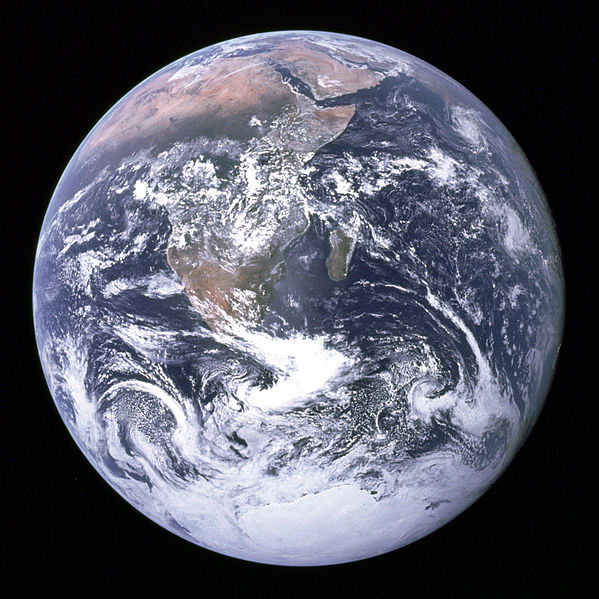Please note: Osher Rainforest will be closed for maintenance Jan. 14–16.
Science News
Earth's Tipping Point
June 14, 2012

A boat has two states—upright and on its side. An upright boat can tip quite a bit and not capsize, but as the tipping increases, once the boat passes a certain angle, it will tip over onto its side, changing its state.
This is one clear idea of a tipping point, offered by researcher Peter Roopnarine, curator of Invertebrate Zoology & Geology here at the Academy. Peter and his colleagues published a paper in Nature last week about crossing that tipping point on a global environmental scale.
The 22 authors of “Approaching a state shift in Earth’s biosphere” ask several questions, Peter says:
1. Could the global biosphere change its state?
2. How would a global state shift affect local ecosystems?
3. What would the planet look like in this altered state?
4. Can we do anything about it?
The researchers began this paper with a workshop in Berkeley in December 2010 with experts discussing past climate and ecosystems; theorizing present-day environmental communities and human impact; and trying to predict the future.
Peter and other scientists take what they understand about past ecosystems and apply them to today. They have certain expectations of what natural communities should look like, so when an environment is out of whack, they are able to offer theoretical explanations.
They combine this with observations on a global scale. The researchers go back to the past and observe global forcings then (e.g. the end of the Ice Age) and try to understand what the consequences were and what recovery looked like.
And now, we’re the global forcing. There are seven billion people on this planet. About 43 percent of Earth’s land surface has been converted to agricultural or urban use, with roads cutting through much of the remainder to support our rapidly growing population. With human population growth, we’re seeing large-scale habitat loss and a warming globe.
Will this push the Earth to a tipping point? Will we see warning signs along the way? And, most importantly, will we do anything about it? We know what we can do, Peter says, it’s just a matter of actually deciding globally and cooperatively what needs to be done.
Peter is hopeful that this paper will reach beyond academia and have actual impact on policy-makers. We hope so, too. What do you think?
More information on the paper, Berkeley meeting and organization (BiGCB) can be found here.